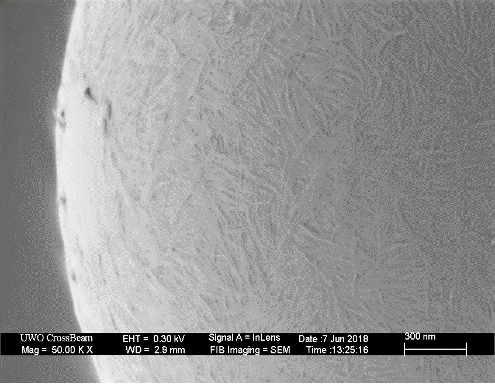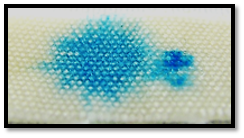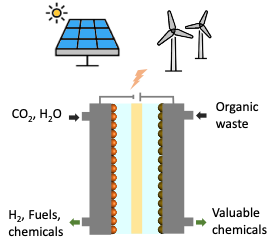Our multidisciplinary research teams are at the forefront of discovery for products and processes that are efficient, environmentally-friendly, sustainable and designed for a cleaner future. Researchers are developing economically viable, solvent-free, sustainable processes for bio-based and compostable polymers, with applications in consumer goods, packaging and various engineering applications. Multidisciplinary research on identification of microplastics in the Great Lakes and tracing their origins is an emerging research area. Students who are interested in conducting research in these areas can add the Collaborative Masters in Applied Sustainability specialization to their master’s degree.

Bio-based cellulose nanocrystals coating surface of micro-particle, providing a green alternative to traditional surfactants.


Water droplets on “smart” carbon dioxide switchable linen. The polymer-coated linen is easily switched between being hydrophobic (left) and hydrophilic (right) by exposure to carbonated water.

Researchers are developing technologies for the conversion of carbon dioxide, water, and organic waste into valuable chemicals and fuels such as hydrogen, ethylene, ethanol, and propanol. New materials and new component fabrication strategies that reduce the cost and improve the efficiency of producing fuels and chemicals for large-scale and long-term storage of renewable energy are being developed by the Sustainable Fuels and Chemicals Group. Stored hydrogen and hydrocarbon fuels can be used in zero carbon emission vehicles or to provide backup power for the electrical grid. Our researchers are developing novel electrocatalysts and electrochemical devices that significantly improve the efficiency of CO2 conversion and hydrogen production while reducing the use of costly precious metals. Novel electrode assembly fabrication methods are being developed that enable the use of low-cost anion and proton conducting polymers that provide better performance characteristics.
Energy storage systems are used in a multitude of applications ranging from consumer electronics to hybrid electric vehicles, with new applications constantly emerging. Researchers are focusing on various aspects of electrochemical energy storage devices including:
This comprehensive research embraces the development of novel technologies and the underlying theoretical background, using sophisticated experimental methods and mathematical modelling.